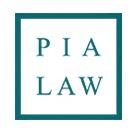Accidents Benefits and Traumatic Brain Injury
July 24, 2013
The accident benefits maze is difficult to navigate at the best of times. This is especially true for victims of a traumatic brain injury (TBI). The Ontario Government recognized this special vulnerability with a 2010 regulation that declared that any individual with a Glasgow Coma Scale (GCS) reading of 9 or less (as the result of a collision) is automatically deemed to be catastrophically impaired.
The purpose of this regulation was to create a “bright line” so that individuals with a GCS reading of 9 or less, did not have to jump through further hoops to be declared catastrophically impaired. That is not to say that TBI victims with a GCS above 9 are precluded from applying for a catastrophic determination, but merely that they will have a more difficult evidentiary burden when doing so.
Not surprisingly, insurers have been reluctant to accept the automatic catastrophic designation of TBI victims with a GCS of 9 or less. Insurers consistently dispute catastrophic designations, even in cases where there is a clear GCS reading of 9 or less.
Often the insurers’ position is that the GCS reading was taken too long after the subject collision, or that the lowered GCS reading was the result of anesthetics and painkillers. These are red herrings. The legislation and the case-law are clear; a GCS of 9 or less leads to an automatic catastrophic designation.
Two recent FSCO decisions are instructive on this point. In Mallat v. Personal Insurance, the accident victim underwent 25 GCS tests. Only one of these tests provided a result of 9 or less. The low reading was taken 15 hours after the collision, after major surgery that had required consciousness altering sedatives. Nonetheless, FSCO had declared the victim to be catastrophically impaired.
In Hodges v. Security National Insurance (confirmed on appeal), FSCO declared that a GCS reading of 9 or less – taken four days after the collision – was sufficient to deem the accident victim catastrophically impaired.
While the crystal clear legislation and case-law has not prevented insurers from contesting catastrophic designations even in the most obvious cases, it seems as though they are not “sticking to their guns” when challenged. When an insurer indicates that it will contest the catastrophic designation of a victim with a GCS of 9 or less, they almost invariably properly retreat when advised in writing about the above-noted FSCO decisions.
If such a letter can convince the insurer not to fight the catastrophic designation, one may be left wondering why they would ever purport to contest the designation in the first place. The answer may very well be that they are playing the odds, knowing that an unrepresented accident victim or a victim with inexperienced and/or unsophisticated counsel may accept the initial denial. Often, the most vulnerable TBI victims are left not receiving benefits to which they are, at law, entitled.
One lesson for health care practitioners: if you have a patient whose records show a GCS reading of 9 or less, and you know that they are not receiving benefits proportionate to their catastrophic impairment, ask yourself why? And then do something about it. The cat, as they say, is out of the bag, and the insurers should not be allowed to change that.
The original version of this article can be read HERE.




